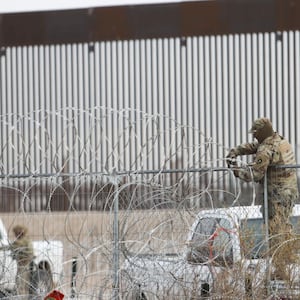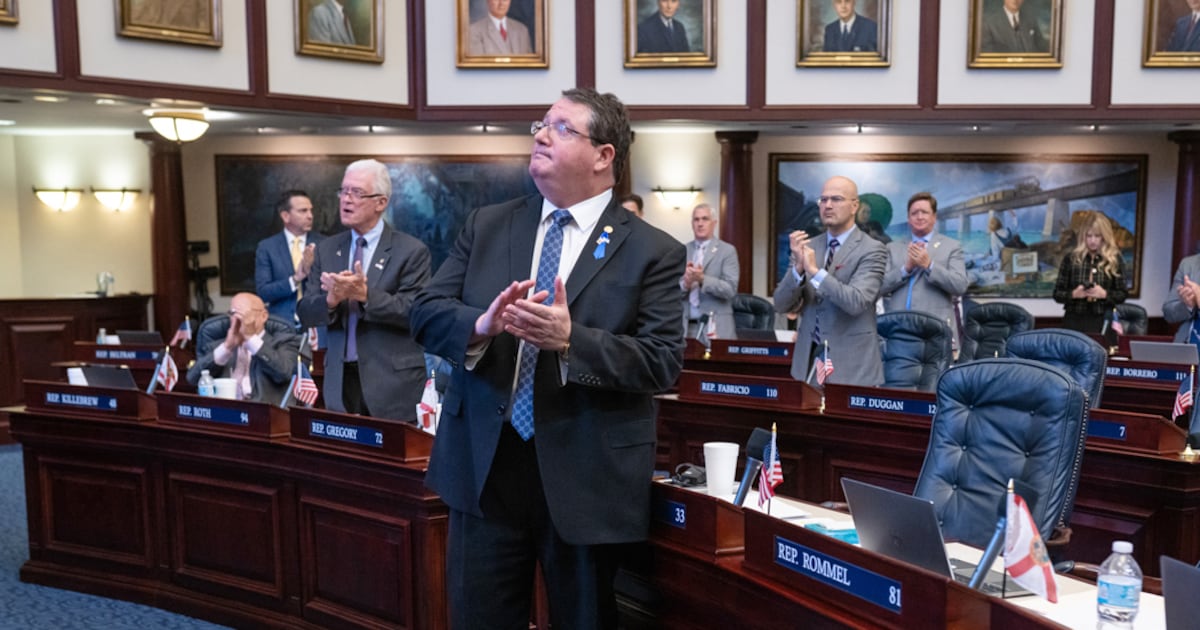A federal appeals court has ruled that Texas cannot immediately enforce a law that authorizes state and local authorities to arrest and deport undocumented migrants.
The 2-1 decision by the Fifth U.S. Circuit Court of Appeals expressed skepticism that the law—known as Senate Bill 4 (S.B.4)—would ultimately be found constitutional. Texas can now ask the U.S. Supreme Court to let it arrest migrants or wait for the legal debate on the merits of the case to be hashed out.
The law—which was signed in December by Texas Gov. Greg Abbott and faces legal challenges from the Biden administration and the ACLU—allows officers to arrest anyone they believe entered Texas illegally. It also would allow state judges to deport those people back to Mexico and make illegal crossing a Class B misdemeanor, which carries a maximum sentence of six months in jail.
ADVERTISEMENT
The appellate panel that put enforcement on hold consisted of Chief Judge Priscilla Richman, who was nominated by George W. Bush; Judge Andrew S. Oldham, who was nominated by Donald Trump; and Judge Irma Carrillo Ramirez, who was nominated by President Joe Biden.
Richman and Ramirez ruled against Texas’ request to enforce the law, with the former writing for the majority that it is the executive branch’s responsibility “to decide whether, and if so, how to pursue noncitizens illegally present in the United States.”
“For nearly 150 years, the Supreme Court has held that the power to control immigration—the entry, admission, and removal of noncitizens—is exclusively a federal power,” Richman wrote, adding that the Texas law currently “bestows powers upon itself that are likely reserved to the United States.”
In his dissent, Oldham wrote that it is not immediately clear if the law is unconstitutional. “The State is forever helpless: Texas can do nothing because Congress apparently did everything, yet federal non-enforcement means Congress’s everything is nothing,” Oldham wrote. “And second, while the dispute before us is entirely hypothetical, the consequences of today’s decision will be very real.”
During oral arguments, a Biden administration lawyer argued that S.B. 4 is unconstitutional because immigration enforcement is up to the federal government and is “fundamentally an international exercise.” He also cited a 2012 landmark Supreme Court decision that ruled an Arizona immigration law—which similarly tried to route immigration enforcement to local authorities—was unconstitutional.
The state of Texas, however, has insisted that S.B.4 is a necessary response to what it says is an “invasion” of migrants who have crossed the border.
“S.B. 4 is a modest but important statute,” Texas Solicitor General Aaron Nielson said last Wednesday. “It’s modest because it mirrors federal law. It’s important because it helps address what even the president has called a border crisis.”
Mexico has said it will not accept migrants sent by Texas and believes the law will create “substantial tension” in international relations.
“Enforcement of SB 4 would inappropriately burden the uniform and predictable sovereign-to-sovereign relations between Mexico and the United States, by criminalizing the unauthorized entry of noncitizens into Texas from outside the county and creating diverging removal requirements between and among individual states and the national government,” Mexico wrote in a Thursday amicus brief.
Since S.B. 4 was passed, at least 10 other Republican-controlled states have scrambled to push forward similar hardline immigration legislation. It also has spurred outrage from immigration advocates who believe the bill—and similar bills it inspired—will lead to increased racial profiling and confusion for local law enforcement.
“The measures are almost certainly politically driven, part of a desire to confront the federal government and the Biden administration over supposedly failed policies and to score political points with an issue that seems to help Republican lawmakers, in particular,” Cristina M. Rodriguez, an immigration and constitutional law professor at Yale University, previously told The Daily Beast.
“And if the laws are allowed to go into effect, they will complicate and undermine the federal government’s enforcement of all of the immigration laws, including by undermining claims to protection or relief that immigrants may have under federal law, as well as by sowing confusion about who’s in charge.”
The fate of these bills may hinge on the future of S.B. 4.
“We are heartened by the Fifth Circuit’s decision to keep S.B. 4 from taking effect. It is the first step towards securing accountability for the state of Texas for risking the health, safety, and standards of Texas residents,” Jennifer Babaie, the Director of Advocacy and Legal Services at Las Americas Immigrant Advocacy Center, said in a statement Wednesday.
Babaie added that Tuesday’s “decision is not the end of this legal battle, and immigrants and Texans of color across our state should remain vigilant, know their rights, and have a plan to protect themselves and their families.”








